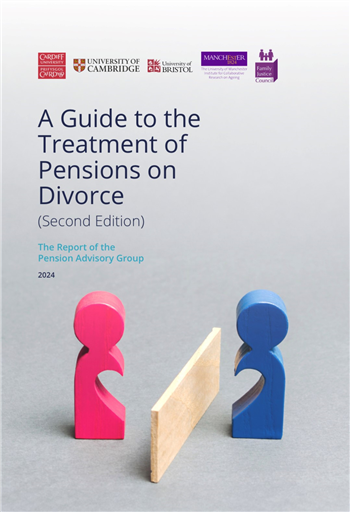
Zooming In: Video Evidence from Outside the Jurisdiction
Published: 15/09/2022 15:39

During the COVID-19 pandemic video-conference hearings became common-place for family lawyers, as for many other lawyers. HMCTS rolled out a Cloud Video Platform, and many courts used Skype for Business and latterly (a swiftly modernised) Microsoft Teams as platforms upon which hearings, including final hearings, could be conducted.
But there have long been provisions in a family Practice Direction – PD 22A – supplementing the Family Procedure Rules 2010, for the taking of evidence via video-link from outside the jurisdiction. These provisions mirror those in PD 32 of the CPR 1998 and indicate that they were modelled in part on a similar protocol in operation in the Federal Court of Australia.
This blog post is to inform (or maybe to remind) practitioners of the steps that must be taken if it is proposed that oral evidence be provided from a foreign country by video-link, and of the various matters that fall to be considered.
The most up-to-date information about the taking of oral evidence by video from outside the jurisdiction in fact comes from the judiciary in the tribunal system, where it was only recently discovered that there were lacunae in the relevant tribunal procedures in this respect.
Rationale
This Presidential Guidance of 27 April 2022 (for the Employment Tribunal) whilst not applicable in the family court, offers a very clear explanation of the potential problems arising in the receipt of oral evidence by video-link and is instructive. It highlights the main concerns, as neatly summarised in the Upper Tribunal (Immigration and Asylum Chamber) in Agbabiaka (Evidence from Abroad, Nare Guidance) [2021] UKUT 286 (‘Agbabiaka’, at para 12, 19 and 23):
‘There has long been an understanding among Nation States that one State should not seek to exercise the powers of its courts within the territory of another, without having the permission of that other State to do so. Any breach of that understanding by a court or tribunal in the United Kingdom risks damaging this country's diplomatic relations with other States and is, thus, contrary to the public interest. The potential damage includes harm to the interests of justice since, if a court or tribunal acts in such a way as to damage international relations with another State, this risks permission being refused in subsequent cases, where evidence needs to be taken from within that State.
Whenever the issue arises in a tribunal about the taking of evidence from outside the United Kingdom, the question of whether it would be lawful to do so is a question of law for that country … In all cases, therefore, what the Tribunal needs to know is whether it may take such evidence without damaging the United Kingdom's diplomatic relationship with the other country.
… it is not for this (or any other) tribunal to form its own view of what may, or may not, damage the United Kingdom's relations with a foreign State.’
Scope
Permission is not required where persons wish to give oral evidence by video or telephone from within the United Kingdom, including for this purpose: England, Scotland, Wales, Northern Ireland, Isle of Man, Isle of Wight, the Channel Islands, or from British Overseas Territories such as Gibraltar, the Falklands, the British Virgin Islands and the Cayman Islands (see footnote 2 in the same Presidential Guidance).
Family guidance
Returning to the Family jurisdiction, specific guidance may be found in Annex 3 to PD 22A (which closely mirrors Civil Procedure Rules PD 32, Annex 3). At paragraph 7 of Annex 3 it is stated:
‘It should not be presumed that all foreign governments are willing to allow their nationals or others within their jurisdiction to be examined before a court in England or Wales by means of VCF. If there is any doubt about this, enquiries should be directed to the Foreign and Commonwealth Office (International Legal Matters Unit, Consular Division) with a view to ensuring that the country from which the evidence is to be taken raises no objection to it at diplomatic level. The party who is directed to be responsible for arranging the VCF (see paragraph 8) will be required to make all necessary inquiries about this well in advance of the VCF and must be able to inform the court what those inquiries were and of their outcome.’
Identical wording appears in Annex 3 to CPR PD 32, at para 4. The point is that there must be respect for the international community and that courts should treat the courts and procedures in other jurisdictions with utmost respect.
The reference to ‘Nare’ in the quotation from Agbabiaka above is to Nare (evidence by electronic means) Zimbabwe [2011] UKUT 00443 (IAC); [2012] Imm AR 207, which itself states that it ‘owes a great deal to CPR 32PD’ (at §21).
Establishment of the Taking of Evidence Unit
Whilst PD 22A details who is to be approached, it does not include the email address which appears in the corollary paragraph of PD 32A in the civil jurisdiction – sopenquiries@fco.gov.uk . However, whilst that still functions, the correct address is now that of the Taking of Evidence (‘ToE’) unit, i.e. TOE Enquiries – TOE.Enquiries@fcdo.gov.uk.
A member of the Consular Directorate of the Foreign and Commonwealth Development Office (‘FCDO’) filed a witness statement in the Agbabiaka case, summarising the correct procedure for requests made regarding the taking of oral evidence from abroad. This anticipated that a Taking of Evidence unit (‘ToE unit’) was to be established in the autumn of 2021, ‘in order to cover the “likely increase from 15–20 requests per year for civil and commercial cases to several hundred for Administrative Tribunals”’. According to the Consular Directorate, the new ToE unit’s process was ‘likely to be akin to that for civil and commercial proceedings’.
So it was on 29 November 2021 that the FCDO established the ToE unit.
What to include in a request to the ToE unit
Emailing the ToE leads to an automated response, inviting the requestor to read new online guidance. The automated response also states:
‘Progress Updates: Your enquiry may need to be sent to an Embassy or High Commission for guidance, and this can take time. You should contact us about video link enquiries before arranging hearing or court dates. If the hearing date has already been set, you should aim to make the enquiry a minimum of 8 weeks before the hearing date.
PLEASE ALLOW A MINIMUM OF 8 WEEKS FOR US TO GET A RESPONSE FROM THE HOST COUNTRY.
For information about giving evidence via video link for criminal cases, read the Home Office guidance on mutual legal assistance
For further information on Taking of Evidence via video link please refer to https://www.gov.uk/guidance/service-of-documents-and-taking-of-evidence#evidence-via-video-link’
In summary (for that is all it is), the guidance at this gov.uk URL states:
- Any enquiry may need to be sent to an Embassy or High Commission for guidance, and this can take time;
- Contact the ToE unit about video-link enquiries before arranging hearing or court dates;
- If the hearing date has already been set, you should aim to make the enquiry a minimum of 8 weeks before the hearing date;
- The request should identify the tribunal before which the evidence is to be given;
- The request should identify the country or countries from which it is proposed that the evidence be given;
- If the FCDO does not hold on file the information you are requesting, you will need to pay a fee (currently £150);
- After reviewing the request, the FCDO will advise if you need to pay the fee.
The procedure has been more elaborately described in the evidence of the Consular Directorate of the FCDO itself in Agbabiaka (at §31). This states that the ToE Unit checks its records to see if a check has previously been made on the position of Country X, or if the last check was made more than five years ago.
If a check has been made in the last five years, the requestor is informed of this by the ToE Unit and that information may be relied upon. However, if a check has not been made in the past five years, the ToE Unit will ask the requestor if they wish FCDO to raise an enquiry with the British Embassy or British High Commission in Country X. That is the point at which the fee of £150 referred to above becomes payable.
Then:
‘at the request of the ToE Unit, the relevant British Embassy or High Commission will check with its local Honorary Legal Adviser if there is any law which explicitly prevents residents or nationals of Country X providing evidence by video link from Country X to Administrative Tribunals in the UK. … If there is no such law, The Embassy or High Commission will check with the Ministry of Foreign Affairs by Note Verbale if the Government of Country X has any objection to residents or nationals of Country X providing evidence by video link from Country X to Administrative Tribunals in the UK. … The Embassy or High Commission will inform the ToE Unit of the outcome of the enquiries [and] the FCDO’s ToE Unit will respond to the initial enquirer.’
(Agbabiaka, §31)
How long does it take to obtain a response from the FCDO?
Referring to the evidence provided by the FCDO, the Upper Tribunal in Agbabiaka noted that ‘where the query is passed to a British Embassy or High Commission overseas and the host government needs to be consulted … it can take ‘weeks or even months’ to receive a reply. On some, albeit rare, occasions ‘host governments fail to reply, even after reminders’. The Presidential Guidance to the Employment Tribunal warns that ‘it can take months’ for a reply to be provided.
Is there a list of the existing positions of different countries available?
It is worth noting that the FCDO via the ToE did not state in Agbabiaka that it intended to publish a list of the positions adopted by foreign governments, although it was implied in Agbabiaka (at §48) that such a list would generally be useful (and would presumably save an awful lot of repetitious work carried out by the ToE unit).
However, by the time of the 27 April 2022 President’s Guidance to the Employment Tribunals, the Tribunal Presidents (for Scotland on the one hand and England and Wales on the other) stated that they were ‘informed that, in the longer term, the FCDO intends to publish and maintain a list on the internet (within the gov.uk domain) of the foreign states that have indicated that they permit the giving of oral evidence to United Kingdom Tribunals (including Employment Tribunals) from within their territory. When this is in place updated Presidential Guidance will be provided.’ At the time of writing, that list is awaited.
What other considerations are there?
Annex 3 to PD 22A FPA 2010 encourages the requestor to devote some thought to an array of other important matters that arise where video-conferencing (VCF) from abroad is proposed. The key points in the Annex are listed below (although not in order of importance):
- The court’s permission is required for the use of any VCF at any hearing – so remember to ask the court for permission. This may, of course, be opposed by the other party or parties to the litigation, in which case permission will not simply be granted on paper – there will be an oral hearing.
- Bear in mind time zone differences (and access to facilities abroad – e.g. the cost of the use of a commercial studio is usually greater outside normal business hours).
- There must be an agreed bundle of any documents to which the witness is to be taken, and this must of course be sent (by the VCF-arranging party) to the remote site.
- It should be ensured that the witness understands who is at the local site (in England & Wales) and what their various roles are.
- How are any objections to the evidence to be raised?
- How are any documents (not in the bundle) going to be deployed? The VCF-arranging party should ensure that equipment is available to enable documents to be transmitted between sites during the course of the VCF transmission.
- The court should allow for any delay between picture and sound, to avoid any tendency for a questioner to speak over the witness, and the witness should be warned about this.
- The witness should be encouraged to keep movements to a minimum (so as to ensure that picture quality remains high).
- If an interpreter is required, consideration must be given to whether they are in the local court or with the remote witness.
- Any costs arising are to be borne in the first instance by the arranging party (not by the court or by all parties together!).
- Each of the remote or local sites need not necessarily be a court room, the key being the availability of the appropriate video-conferencing facilities in each case, the court having the final say on whether the quality of the facilities is sufficient for a satisfactory transmission, but the local court room must have a coat of arms!
- A technical assistant must be present at each of the local and the remote sites, and if the local site is not a court-room then it is the job of the VCF-arranging party to ensure that a recording assistant is available to start / operate the recording.
- It is the job of the VCF-arranging party to ensure that technicalities such as the number of microphones and ability of cameras to pan are addressed appropriately;
- Consideration may need to be given (and any permission obtained for) a back-up recording facility in the remote location – this may be ‘a valuable safeguard’ if there is any reduction in sound quality during transmission. The court will direct what is to happen to any back-up recording.
- If members of the public are permitted to attend then the local facilities should have sufficient space for the possibility of their attending.
- How will the oath be administered? Prior enquiries should be made of the remote country in order to ascertain whether any oath or affirmation should be in accordance with local custom as opposed to the usual oath or affirmation in England and Wales. The onus is on the requesting party to carry out those checks, and the information should be able to be provided to the court upon any request. The onus is also on the requesting party to ensure that any Holy Books are available abroad.
- It will be for the court to direct seating arrangements and it will in practice be most convenient if everyone remains seated throughout the transmission.
- Finally, the examination of the remote witness should follow as closely as possible the practice as it would be in a courtroom. The witness must be able to see the legal representative asking the question and also any other person (whether another legal representative or the judge) making any statements in regard to the witness's evidence.
Conclusion
It can be all too easy to overlook the requirements for compliance with the above, particularly in the post-pandemic world where video-conferencing has boomed in popularity, and where barely a second thought is given to its use in legal conferences. However, the guidance exists for a reason, and the risk of not being able to adduce evidence because procedures have not been complied with is very real.
I was recently late-instructed in a case where an enquiry had not been made of the ToE unit by the first day of the trial. To instil hope in the reader, and to illustrate that the ToE unit is very efficient if it already has the relevant information, it took just eight minutes for a positive response to be given by the ToE unit to the last minute request made of it by one of the parties. That did not of course resolve all of the other difficulties, all of which are identified in the numbered list above, but it did enable the court to hear the evidence and the witnesses to be cross-examined. The prospect of having to fall-back on the rules relating to hearsay evidence (notably the reduced weight accorded to the same by the court) can be quite alarming. It would obviously be unwise to rely upon the potential success of such 11th hour requests. Preparation is key, and there is no substitute for familiarising yourself with Annex 3 to PD 22A of the FPR 2010.
Gwynfor Evans
Barrister
36 Family
NB This blog was first published by Gwynfor Evans on the 36 Family International Blog.










